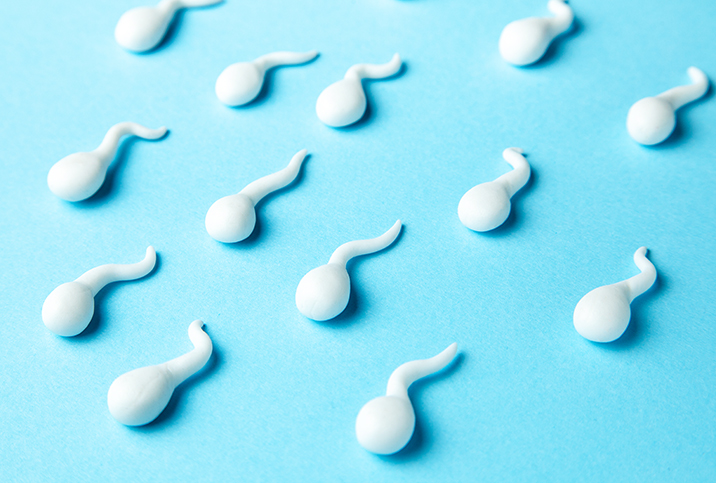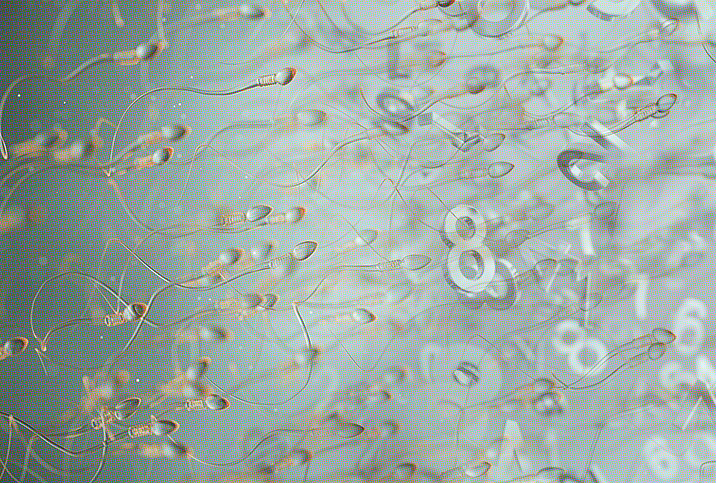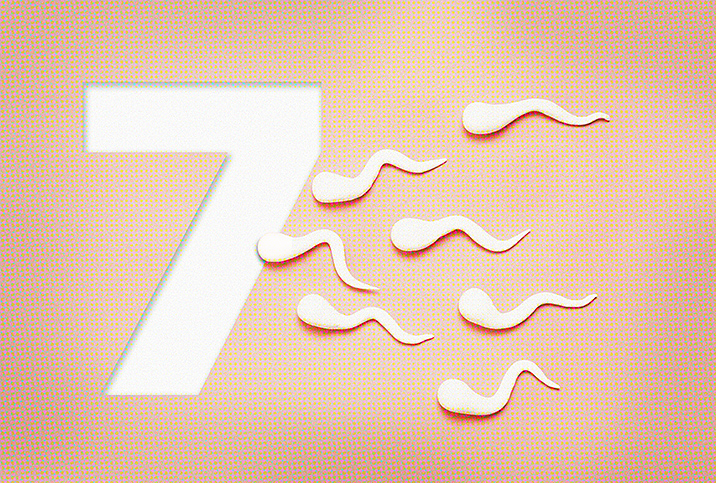The Impact of COVID-19 on Sperm Count

As if you needed more reason to stay clear of COVID-19, two new studies—both small and in need of further corroboration—show that a reduced sperm count is a possible side effect for men who contract the coronavirus.
One group of researchers published a study in the journal EclinicalMedicine that examined reproductive tissue taken from men who had died of COVID-19. The researchers compared the dead men's samples to those taken from men who were recovering from mild to moderate cases of the disease. Then, they compared both groups' tissues to samples taken from a group of healthy men who had never been infected.
Samples from the deceased men's testes and epididymis (the long, coiled tube that transports sperm from the testicles) showed excessive proteins and other cells that indicate inflammation. The samples also exhibited high numbers of dying cells, as well as blood in the testes and epididymis.
Of the men recovering from COVID-19, 39 percent had a low sperm count, even though they had previously fathered a child via natural methods, indicating damage to the testes or other components of the reproductive apparatus. Sixty-one percent showed elevated white blood cell counts in their semen, which is one more strong indicator of unhealthy sperm.
Despite these damning results, it's wise to keep a few caveats in mind. First, this is a tiny sample group. Second, the researchers have no data on what the participants' sperm counts were before they contracted COVID-19, so it's impossible to conclusively blame the disease itself.
Similar findings
A second study, published in the journal Reproduction, also found that men who were infected with the coronavirus sustained damage to the reproductive tissues and, specifically, to the health of their sperm cells.
This study consisted of a group of 84 men who had contracted the coronavirus, and researchers checked the health of their sperm cells every 10 days over a 60-day period. When the data were compared with a group of 105 healthy men, the infected men showed greater inflammation in the reproductive organ tissues, more oxidative stress and higher rates of sperm cell death.
Experts say that while these abnormal conditions decline over time, preliminary signs suggest rates remain higher for men who have contracted COVID-19.
Another interesting finding that will no doubt be explored further is a correlation between the severity of the men's infections and the severity of the decline in their sperm count. That is, the sicker they got with the coronavirus, the worse off their sperm count was—and may well be for the foreseeable future.
More study necessary
Experts know that a study of 84 sick men against a control group of 105 well men isn't big enough to draw definite conclusions. Another aspect to keep in mind is that when it comes to viruses, the coronavirus isn't the only one that messes with your sperm count. Any viral infection, especially one that causes a fever, is likely to lead to inflammation and lower sperm counts for men, at least temporarily.
Certain viruses—such as mumps, HIV, Zika and others—cause similar long-lasting reproductive effects. It remains to be seen whether the virus that causes COVID-19 will join these ranks.
COVID-19 is a deadly disease that severely damages a host of bodily systems. Some of these effects, including compromised lung capacity, cognitive issues and others, appear to be long-lasting. We already knew the coronavirus was nothing to mess with in terms of your long-term health, but now it seems possible it might affect your ability to reproduce.


















